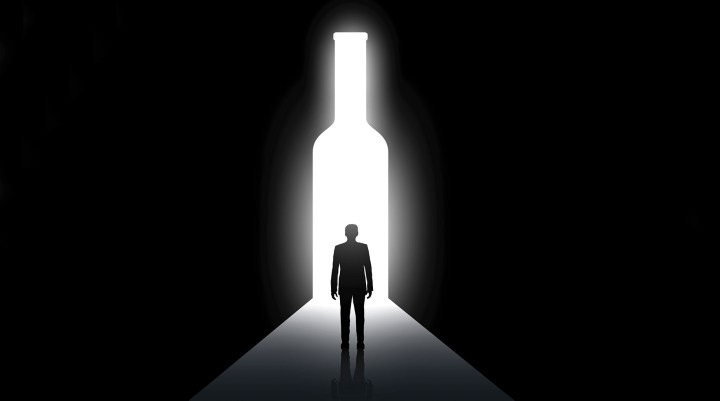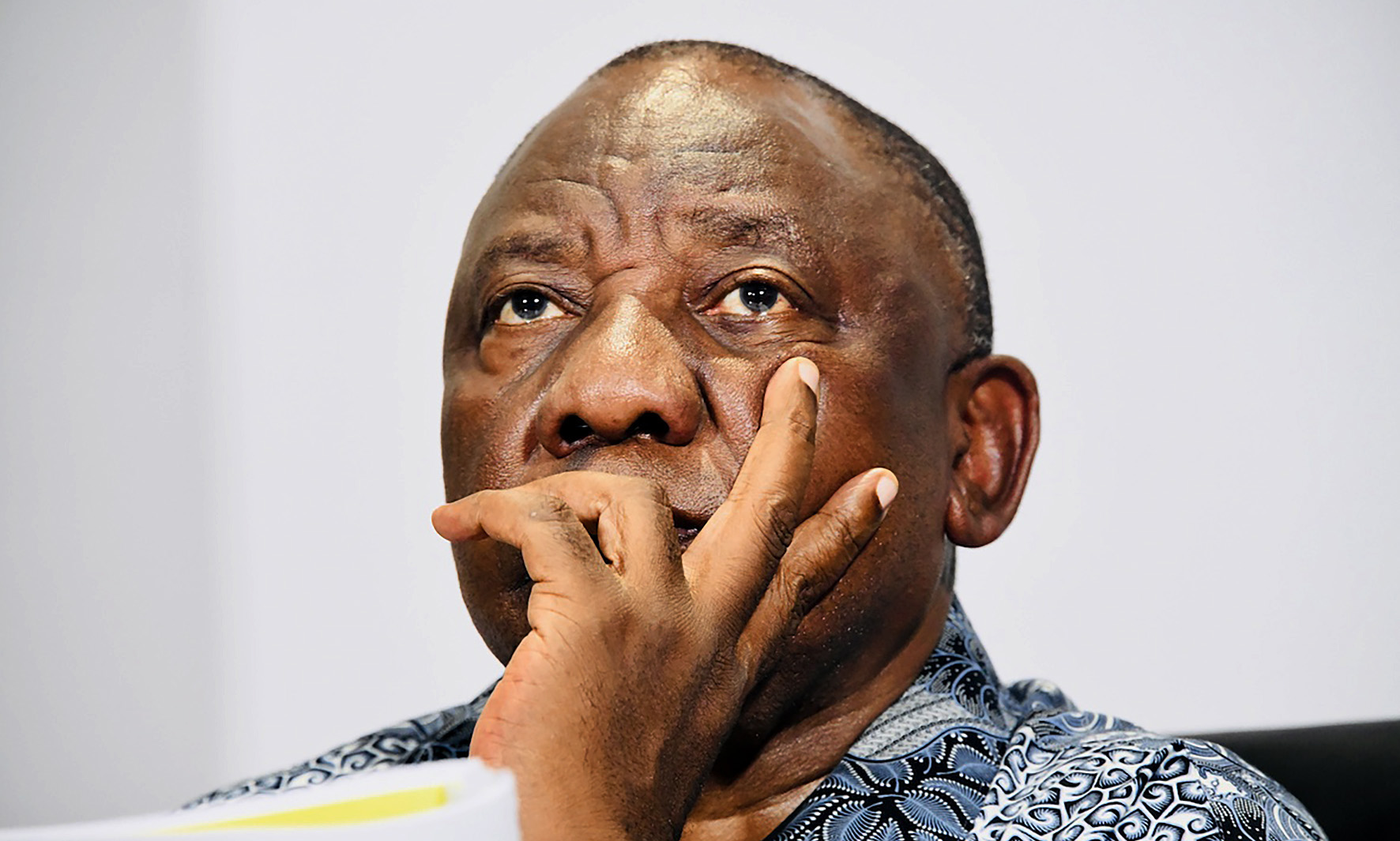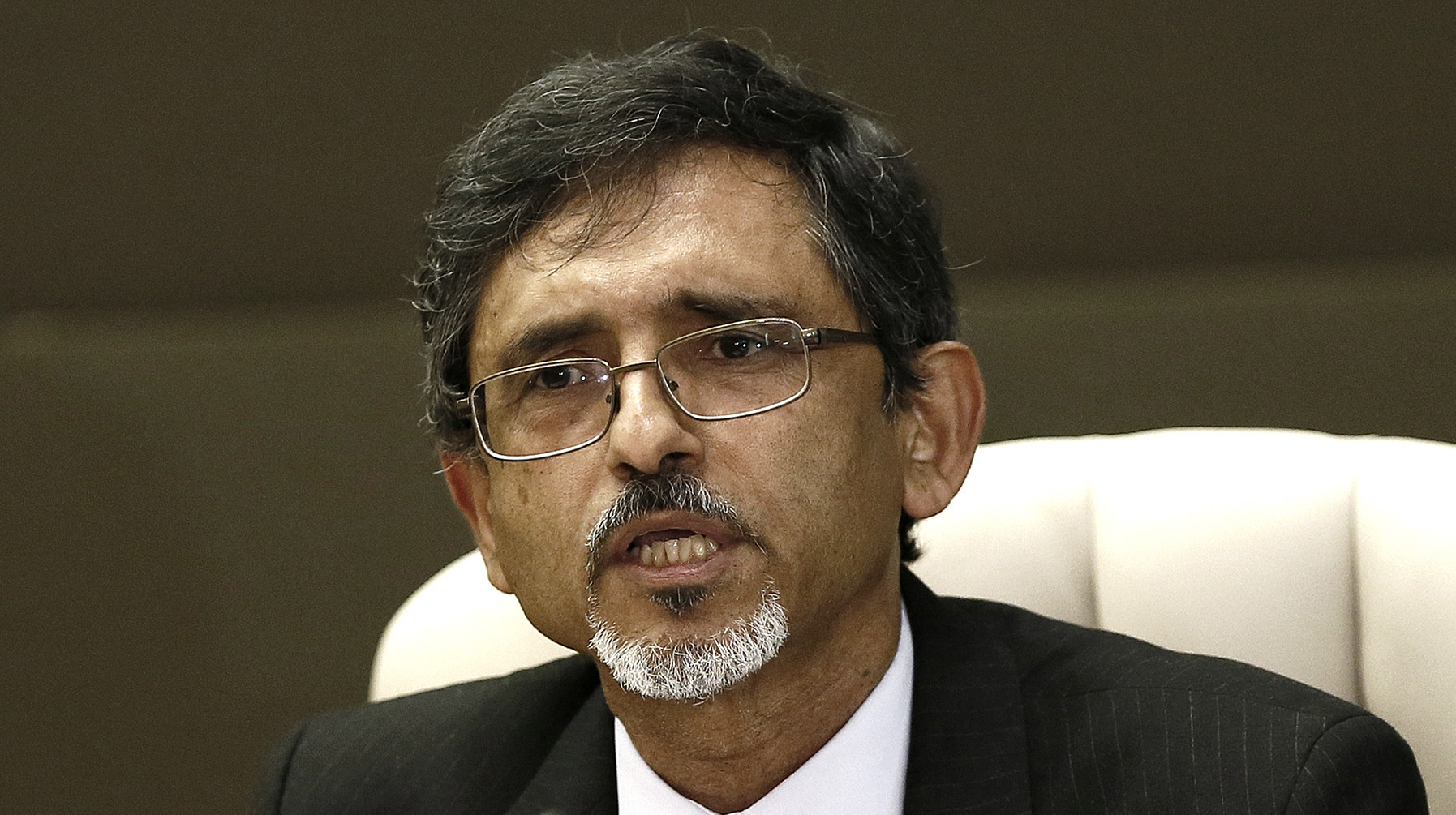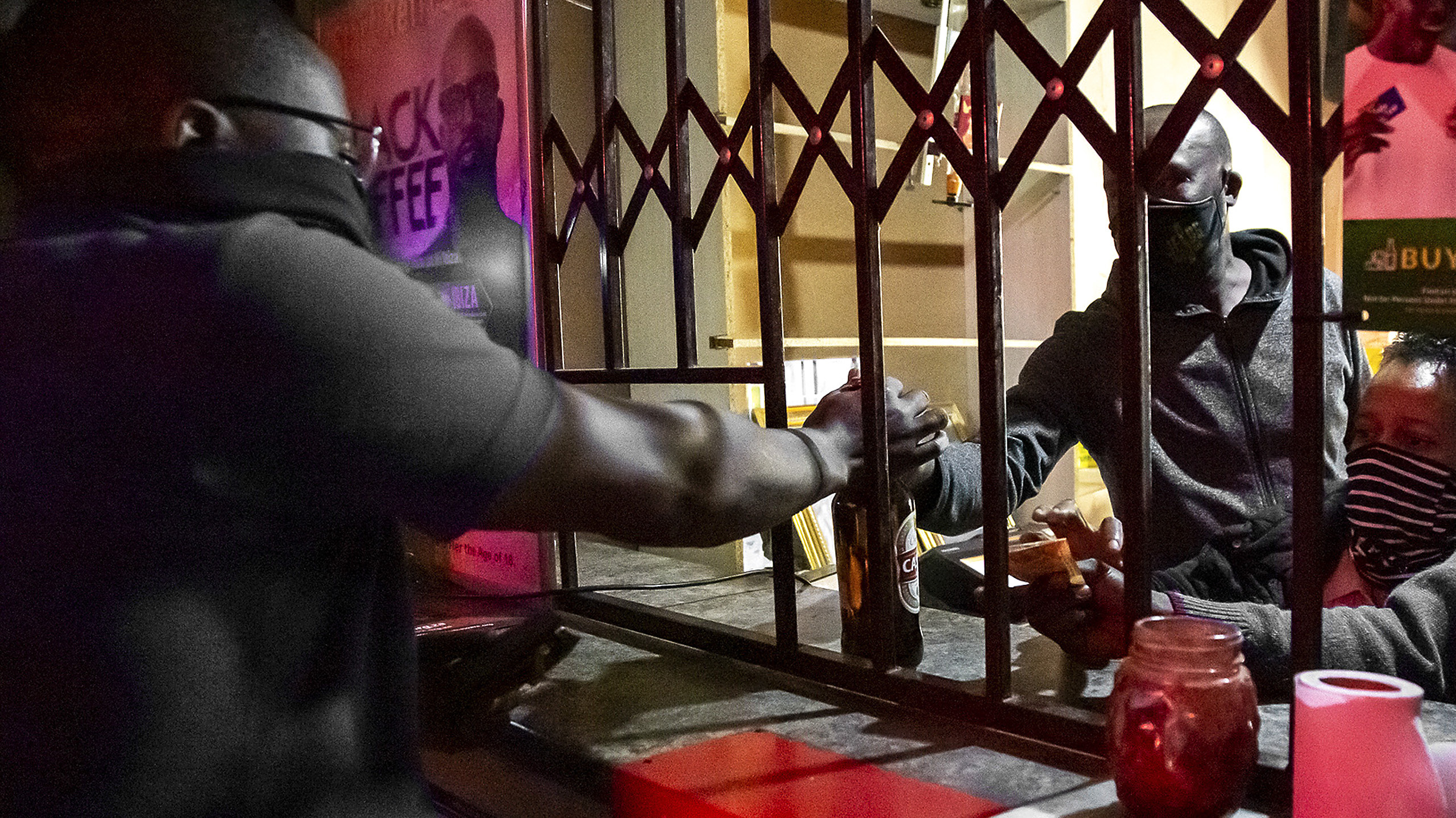REGULATING ALCOHOL
Will this year’s Sona deliver the harm-reducing liquor legislation civil society has been waiting for?

The language in the ANC NEC’s January 8 statement is disturbingly similar to that of the alcohol industry in its failure to recognise the need to rein in the industry, which begs the question: Has the governing party lost the political will to deal with the country’s alcohol crisis?
The Southern African Alcohol Policy Alliance in SA (Saapa SA) is waiting to see if President Cyril Ramaphosa includes a concrete commitment to dealing with alcohol harm when he delivers the 2022 state of the nation address (Sona) on 10 February. However, we are not hopeful, following the ANC national executive committee’s (NEC’s) January 8 statement this year, which is markedly different on the issue of alcohol-related harm to the January 2021 message.
Saapa SA and its alliance partners were encouraged when Ramaphosa said at the time: “The temporary restrictions placed on the availability of alcohol under the state of disaster regulations (adopted to deal with the Covid-19 pandemic) have demonstrated the extent to which abuse of alcohol fuels violence (including gender-based violence), trauma and reckless behaviour and places a burden on our health system and emergency services. We must take measures to reduce the abuse of alcohol through a combination of legislative and other measures and community mobilisation.”

The Southern African Alcohol Policy Alliance in SA is waiting to see if President Cyril Ramaphosa includes a concrete commitment to dealing with alcohol harm when he delivers the 2022 State of the Nation Address on 10 February. (Photo: GCIS)
Later that month, in an interview with the Sunday Times (“Stiffer tax on booze looms large”, 17 January 2021), he went even further, saying: “The ANC national executive committee has suggested that the government introduce stricter liquor laws on a permanent basis. I think South Africans need to get to grips with the impact of alcohol.
“The legislative part is something we need to look at very closely to see how we begin to reduce the abuse of alcohol. We need to raise the age limit. Or do we need to look at trading hours for the purchase of alcohol, do we need to look at things like taxation? Should alcohol be as widely and broadly advertised as it is, to a point that even young children see alcohol being advertised throughout the course of the day?
“We saw what abuse of alcohol does in the number of trauma cases that are often reported; when we imposed the ban, many trauma cases stopped.”
And then, nothing
Despite these strong, unambiguous statements, there was no commitment by the government in the 2021 Sona to address the issue of alcohol harm. Nothing happened over the following months to give effect to the calls by Ramaphosa and the NEC. The minister responsible for primary national liquor legislation — Trade, Industry and Competition’s Ebrahim Patel — was not spurred into action. There was no public indication from him or his department that the processing of the long-outstanding Liquor Amendment Bill of 2016 would be fast-tracked to address the expressed concerns of the NEC and the president.
Now, the January 8 statement by the NEC has come and gone, leaving us puzzled, disappointed and frustrated. The word “alcohol” appears but twice and there is no talk of legislative reform. There is only a vague call to the ANC Youth League to pursue “diversionary activities” such as sport and recreation to lure (young) people away from using alcohol excessively.

Minister of Trade and Industry Ebrahim Patel. (Photo: Gallo Images / Phill Makagoe)
There is no acknowledgement of the structural and institutional drivers of the harmful use of alcohol, no recognition of the need to rein in the alcohol industry. In fact, the language in the January 8 statement is disturbingly similar to that of the industry. Alcohol companies always avoid talking about legislation, preferring to focus on the behaviour of individuals by calling for “responsible drinking”, trying thereby to relieve themselves (and government) of any “responsibility” for dealing with industry practices that are contributing to the problem.
Governments must intervene
From the World Health Organization (WHO) to leading public health researchers and practitioners across the globe, the message is clear: robust government intervention is needed to reduce excessive alcohol consumption and limit its negative social impact on the lives of people and communities across the world. Much as the alcohol industry would love to self-regulate, it will never adopt measures that will threaten its profit.
It is only governments that have the authority and capacity to ensure the realisation of an alcohol-safer country — through the adoption and enforcement of effective legislation, with the support of communities empowered to have a meaningful influence over when, where and how alcohol is sold and consumed in their neighbourhoods.
In the period between 2010 and 2017, Cabinet and key departments appeared to support the WHO position. An inter-ministerial committee was established to focus on the harmful use of alcohol and other substances. Government departments were advised not to enter into partnerships with the alcohol industry. The Department of Health proposed a bill that would ban all alcohol advertising and sponsorships. Cabinet approved a new liquor policy based on the WHO “best buys” of reducing alcohol availability, increasing the price of alcohol, and limiting or banning alcohol advertising.
A liquor amendment bill, which would have given effect to important recommendations in the new liquor policy, was drafted by the erstwhile Department of Trade and Industry. However, this all came to a grinding halt in late 2017.
No urgency
In his book Towards a New Deal, former minister of trade and industry, Rob Davies, who drove the process of developing the new liquor policy and the Liquor Amendment Bill, said: “In the end, the liquor bill was not deemed urgent at the end of the fifth term. It remains to be seen how this important issue will be dealt with in the sixth Parliament.” Almost three years after the appointment in May 2019 of Patel as minister of trade, industry and competition, we have seen “how this important issue … [has been] … dealt with in the sixth Parliament” — not at all.
All we, as Saapa SA, have at this stage are informal indications that the bill might be watered down or possibly even scrapped, and that Business Unity South Africa (Busa) has quietly commissioned a socio-economic impact assessment of the bill.
The 2017 socio-economic impact assessment recommended that the Liquor Amendment Bill be passed because it would reduce alcohol harm and save lives. The brief for the current assessment is to determine whether the alcohol environment has changed since then and what this means for the proposed legislation. Is Busa — and perhaps the government — hoping there will be a different finding and that the amendment bill can be quietly scrapped? We don’t know anything, because nothing public has been said about the new process to date.
New developments
There have been other alcohol-related legislative developments over the past two years, not all positive.
The long-delayed National Road Traffic Amendment Bill — which seeks to reduce the blood alcohol concentration of all drivers — has made it to Parliament and, after a period of public consultation, is now with, or on its way to, the National Council of Provinces. The former minister of health, Zweli Mkhize, announced the repeal of the 2017 Amendment to Regulations relating to Health Messages on Container Labels of Alcoholic Beverages, which had been drawn up in terms of the Foodstuffs, Cosmetics and Disinfectants Act, 1972. The amendment required labels on alcoholic beverage containers to have more explicit and visible health warnings, but it appears that pressure from the alcohol industry persuaded the government to back down for now.
On a positive note, the Liquor Products Amendment Act was passed in September 2021.
Two other bills that could have alcohol-related implications are being processed — the Children’s Amendment Bill of 2020 and the Basic Education Laws Amendment Bill of 2021. During Parliamentary Standing Committee hearings on the Children’s Amendment Bill in 2021, communities raised serious concerns about the use of alcohol in and around school premises, asking for something to be done to change this in the interests of the country’s children.
But, in a bizarre (albeit unintended) counter to these pleas, the new version of the Basic Education Laws Amendment Bill, which was introduced to Parliament on 10 January 2022, is proposing that schools be allowed to apply for liquor licences. The previous iteration of the Basic Education Laws Amendment Bill had specifically prohibited schools from having alcohol on their premises.
Better school environments
In calling for alcohol outlets to be 500 metres or more from institutions of learning, the Liquor Amendment Bill would disallow school liquor licences and would lead to an improvement of the environment around schools. It would also prevent the awarding of liquor licences to petrol station premises — without this legislation, the exploratory applications by BP and Pick n Pay in 2021 could become the norm, with many of the more than 5,000 petrol station shops in the country licensed to sell wine. This is why the passing of the Liquor Amendment Bill is so important.
But Patel has been so silent on the issue of alcohol that it is impossible to know what his views are. His silence has allowed the draft legislation to remain just that, while the industry has had free rein to continue expansion of its marketing and distribution channels, including the new trend of online sales and home deliveries that developed during the pandemic.
The president and his Cabinet colleagues have not been so quiet. Since the start of the pandemic, they and a number of provincial MECs, mayors, public health officials and civil society organisations have called for more effective legislation to reduce alcohol-related harm in the country. According to them, Covid-19 has revealed the stark reality of the extent of the alcohol problem in South Africa and the need to take urgent action to address it.
But how can the current administration act to reduce alcohol harm if the key minister responsible for liquor legislation appears to believe it’s not a priority?
At the end of 2021, the government lifted the Covid-19 curfew for the first time since March 2020 and allowed gatherings of up to 1,000 people indoors and 2,000 outdoors. That the easing and final lifting of restrictions on alcohol will see a return to the pre-Covid-19 “normality” of excessive and harmful drinking is already apparent from the rising number of alcohol-related trauma cases in hospitals in recent weeks.

(Photo: Gallo Images / OJ Koloti)
Now that we know that a better, safer reality in terms of alcohol use is possible, do we really want to go back to the old “normal”?
Follow the money
South Africans have been waiting many years for legislation that would reduce alcohol harm and thus make a real difference to the quality of their lives. Too many have died unnecessarily in the interim, too many have had their lives disrupted as a result of the harmful use of alcohol. Economic development has slowed down and the public health service is under unnecessary pressure. Part of the reason, in both instances, is the tangible and intangible costs of alcohol harm that are estimated to be two to three times higher than the alcohol industry’s contribution to the fiscus.
This is why we can no longer afford the inordinate delay in the adoption of new legislation. There is an urgent need for government to show it has the political will to deal with this acknowledged crisis by adopting a whole-of-government approach to getting all alcohol-related legislation passed and implemented as soon as possible.
Will the Sona this year compensate for the disappointment of the Sona and lack of action in 2021? Will it be bolder and more to the point than this year’s ANC’s January 8 statement?
We hope so. If not, Saapa SA, its alliance partners and other organs of civil society will increase the pressure on the government until appropriate steps have been taken to make South Africa an alcohol-safer country. We — and people in communities across the country — are tired of waiting for something to be done. DM/MC
Maurice Smithers is the executive director of Saapa SA.
[hearken id=”daily-maverick/9072″]




















 Become an Insider
Become an Insider
Comments - Please login in order to comment.